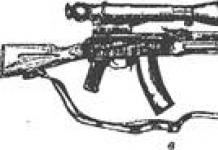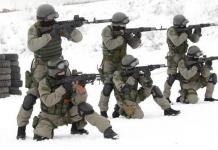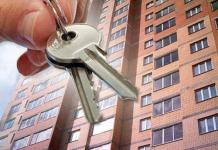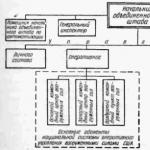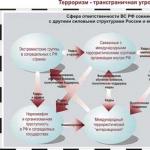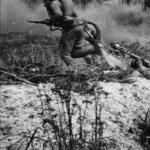Safe handling of electricity
In the house, electricity provides lighting, heating, cooking, the operation of various household appliances, television, radio equipment. At the same time, electricity, under certain conditions, poses a serious danger to human life and health.
To avoid this, it is necessary to follow a number of generally accepted rules when using electricity:
Make sure that electrical appliances and the cords with which they are connected to the network are in good condition.
Do not use faulty electrical appliances, home-made electric furnaces, heaters.
Do not repair appliance plugs with electrical tape. Replace them if they are broken.
Never leave a switched on electrical appliance unattended.
Do not plug more than one plug into an outlet.
Follow the order of connecting the device to the mains: first, the cord is connected to the device, then to the mains, the disconnection is performed in the reverse order.
Do not handle the electrical appliance with wet hands.
Do not keep appliances connected to the mains in the bathroom; remember:
Do not use electrical devices while in water.
Repair any bare spots and breaks in electrical wires immediately.
Do not make temporary wire connections.
Safe handling of city gas
Currently, household gas is very widely used in everyday life. Household gas has neither color nor smell, but in order to be able to detect its leakage, special
substances that have a specific odor.
A gas leak can lead to poisoning of a person and an explosion of the room. To prevent this, you must follow a number of safety rules when using household gas:
To light a gas burner, first bring a lit match, and then slowly and carefully open the gas cock.
Do not leave gas burners on unattended.
Make sure that the liquid being heated does not flood the burner flame.
Having noticed an extinguished burner, do not try to light it again - this can lead to an explosion, turn off the gas supply valve, open the window and ventilate the kitchen.
Wait until the burner has cooled down, clean it, purge the gas supply holes and only then light it again.
If there is a smell of gas in the room, do not light matches, turn on lights and electrical appliances until the gas leak is eliminated and the room is completely ventilated.
Having found the smell of gas in the entrance of the house, immediately call the emergency gas service by telephone "04", provide the exact address.
Announce the danger to all residents of the house, do not use open fire and electric bells.
Open the windows and doors in the entrance, carefully ventilate it. Upon arrival of the gas service specialists, indicate to them the source of the gas leak, follow their instructions. THE POPULATION USING GAS IN THE HOUSEHOLD IS OBLIGED:
Be instructed in the safe use of gas in the operating organization of the gas facilities, have and follow the instructions for operating the devices.
Monitor the normal operation of gas appliances, chimneys and ventilation, check the draft before switching on and during operation of gas appliances with the removal of combustion products into the chimney. Before using a gasified oven, check that the damper is fully open. Periodically clean the “pocket” of the chimney.
At the end of using gas, close the taps on gas appliances and in front of them, and when placing cylinders inside the kitchens, additionally close the valves near the cylinders. In the event of a malfunction of the gas equipment, call the employees of the gas facilities. In the event of a sudden interruption in the gas supply, immediately close the valves of the burners of gas appliances and inform the gas service by calling 04
Before entering basements and cellars, before turning on the light and lighting the fire, make sure that there is no smell of gas.
If you smell gas, in the basement, porch, in the yard, on the street: inform others about the precautions; report to the gas service by phone 04 from a non-gassed place; take measures to remove people from the gassed environment, prevent switching on and off of electric lighting, the appearance of open fire and sparks; prior to the arrival of the emergency brigade, organize ventilation of the room. Be careful with gas! Your forgetfulness, inattention can cause trouble to you, your loved ones and neighbors. Only skillful handling of gas appliances and knowledge of the rules for using gas will help you avoid accidents.
The Ministry of Emergency Situations warns - be careful with household gas, follow all the requirements for the safe operation of gas appliances. In order to avoid accidents during the operation of gas appliances, experts recommend observing the following rules and recommendations:
Gas cylinders and gas equipment should be purchased only from specialized organizations that have certificates for the sale of these products. After all, their owners are responsible for the safe operation of working gas appliances and their maintenance in proper condition. Never buy gas appliances, including gas cylinders, from unauthorized persons.
An annual inspection of gas equipment by specialists is mandatory.
Before opening the gas valve on the stove, bring a lit match to the burner.
Remember that gas mixed with air is explosive and flammable!
Sources of ignition of the mixture can be: open fire (matches, cigarettes, etc.), an electric spark that occurs when turning on and off electrical appliances. In order to avoid poisoning, it is necessary to check the draft before ignition, immediately after switching on gas appliances and during their operation, monitor the condition of the ventilation ducts, constantly ventilate the room, especially before going to bed.
It is advisable to place gas cylinders (working and spare) for household gas appliances outside buildings (in annexes, basement and basement floors, cabinets or under casings that cover the upper part of the cylinders or a gearbox) at a blank wall at a distance not closer than 5 m from the entrances to the building. Outbuildings must be made of non-combustible materials.
Outbuildings and cabinets for gas cylinders must be locked to prevent access to them by children and unauthorized persons and have blinds for ventilation.
When using gas at home, it is prohibited:
Tie ropes to gas pipelines (this violates the density of threaded connections, gas leakage may occur and, as a result, an explosion); dry clothes and hair over a lit stove;
arbitrarily reinstall and repair gas appliances, cylinders, fittings; leave unattended working gas appliances;
allow children of preschool age and persons who do not know the rules for their safe use to use gas appliances;
use open fire to detect gas leaks (only soap emulsion should be used for this);
install a pressure regulator without an o-ring or gasket;
bend and twist the rubber-fabric sleeve (hose), allow damage to the outer layer of the sleeve (cuts, cracks, kinks), as gas leaks occur in these places; place flammable materials and liquids near the operating stove; use rooms where gas appliances are installed for sleeping and relaxing; use gas and gas stoves for space heating;
attach parts of gas fittings using a sparking tool; store spare cylinders.
In the event of a leak from an underground gas pipeline, gas can enter the basement of a residential building through loose soil or cracks in the foundation. Having discovered the smell of gas, it is necessary to protect the entrance to the basement, make sure that they do not smoke or light a fire nearby, ensure ventilation of the basement, entrance and call the emergency service.
In the event of a malfunction of the gas equipment or if there is a smell of gas, you should immediately stop using the device, turn off the taps on the stove and the valve on the cylinder or the flag on the reducer, call the emergency service by calling “04” and thoroughly ventilate the room. During this time, do not use open fire, do not turn on or off electrical appliances and electric lighting.
The Supervisory Department of the Leningradsky District reminds the population of fire safety measures when using gas equipment.
75% of fires from the total number of fires occurring in the area occur in residential buildings. Fires destroy household property, cause material damage to the state and owners. People are dying.
Remember that you are responsible for the health of the gas equipment inside the apartment. When selling any gas appliance must be supplied with an instruction manual. The person who installs the machine must issue you a document certifying that the work has been carried out in accordance with technical standards and safety rules. Flexible hoses should be as short as possible (no more than 2m). Make sure they are tight on the faucet. The maximum service life of the flexible hose is four years (the limit may be marked on the hose), but care must be taken to replace it every two years. The hose clamp should provide a complete seal, but do not try to clamp it too tightly as this may rupture the hose and cause a gas leak. Do not forget that the gas used in everyday life is explosive, therefore, when using gas appliances, you must follow the fire safety rules!
Gas Leak Detection Methods
Approximately. Bubbles form on the surface of soapy water poured along gas pipes at leak points.
Aurally. In the event of a strong leak, the gas escapes with a whistle.
By smell. The characteristic odor that the gas emits becomes stronger near the leak. Never look for a gas leak with an open flame, such as a lit match. Try to cut off the gas supply if possible. Be sure to call the fire department.
When using gas appliances in the home, the following safety precautions should be followed:
Constantly check the draft, keep the windows in the rooms where gas appliances are installed open. The burning gas burns oxygen; therefore, it is necessary that the room be provided with constant ventilation. Do not plug the ventilation openings in winter.
Do not leave working gas appliances unattended unless they have the appropriate automation and are not designed for continuous operation.
Do not use gas stoves for heating, and rooms where gas appliances are installed for sleeping and relaxing.
At the end of the use of gas, close the taps on gas appliances, the valves in front of them, and when using cylinders, the valves of the cylinders;
Regularly check the tightness of hoses and threaded connections on pipes with soap suds;
Keep your gas stove clean;
when leaving the apartment, turn off the gas on the gas pipeline or tighten the valve on the gas cylinder.
Remember, gas leaks usually occur as a result of a breakdown of the hose connecting the gas pipeline to the stove, depressurization of threaded connections, forgetfulness of people leaving valves open, pranks of children, pouring water over the edge of the dishes into the flame.
What to do in case of a gas leak
Avoid any activities that cause sparks and increase the temperature of the air in the room. Do not touch the electrical switches - this can also cause a spark. Provide intensive ventilation of the room by opening all windows. Remove everyone present. Stop, if possible, the gas supply. Call the master.
Gas caught fire at the leak: as long as the gas burns, there is no danger of an explosion. Never blow out the flame, as this can lead to a catastrophe gas and air form an explosive mixture, and in the presence of an ignition source (overheated metal, burning coals, sparks, electric arc, etc.), an explosion is inevitable. Make sure that objects located near the fire do not catch fire. Leakage from compressed gas cylinder.
As a rule, the leak occurs at the junction of the cylinder with the flexible hose. With such damage, it is prayed to temporarily cover this place with a wet rag. If you can, take the balloon outside. If this is not possible for you, ventilate the room well. Avoid any activity that causes an increase in air temperature. Return the cylinder to the supplier immediately. One of the reasons for the prerequisites for a fire is a violation of safety rules when using a gas stove and risers on the first floors. So, one of the family members turns on the gas stove, puts containers for cooking or heating food on it and is distracted for a long time by other things, forgetting that hot cooking utensils, burnt food, rapidly boiling water can create a fire hazard in apartment. To avoid fire when using gas appliances, we strongly recommend that you remember and follow the rules proven in practice:
Particular attention should be paid to the use of gas risers on the ground floors in the summer: negligent tenants, due to inexperience or deliberately, during their absence from the apartment, close the gas valves on the gas parking on the first floor, which is very dangerous, because thereby the entire gas system in the house is blocked, which fraught with the most serious consequences up to a fire and death of people.
In case of danger, if residents are absent for a long time, employees of the Ministry of Internal Affairs and the Ministry of Emergency Situations will be involved to open the apartments.
Fire on a compressed gas cylinder. Try to turn off the faucet by wrapping your hands in a wet rag. If this is not possible (fire on the gasket, the faucet has deformed due to heat), do not blow out the flame, as this may lead to an explosion. Call the fire brigade immediately and try to protect objects located near the fire from ignition. Never move a compressed gas cylinder until it has cooled down: the slightest push can cause it to explode.
IT IS FORBIDDEN:
Allow preschool children, persons who do not control their actions and do not know the rules for using these devices to use gas appliances.
Store empty and filled with liquefied gases cylinders in rooms and basements. Have in a gasified room more than one cylinder with a capacity of 50 (55) l or two cylinders of 27 l (one of them is a spare).
Place cylinders against the furnace doors of furnaces at a distance of less than 2 m from them. Use gas: in case of malfunction of gas appliances, lack of draft, detection of gas leakage, without checking the condition of smoke and ventilation ducts.
Any unauthorized actions with gas equipment, gasification without appropriate permits, and the involvement of random persons for the repair and rearrangement of gas appliances are prohibited. All types of work related to gas should be carried out only by specialized organizations.
THE POPULATION USING GAS IN THE HOUSEHOLD IS OBLIGED:
Be instructed in the safe use of gas in the operating organization of the gas facilities, have and follow the instructions for operating the devices.
Monitor the normal operation of gas appliances, chimneys and ventilation, check the draft before switching on and during operation of gas appliances with the removal of combustion products into the chimney. Before using a gasified oven, check that the damper is fully open. Periodically clean the “pocket” of the chimney.
At the end of using gas, close the taps on gas appliances and in front of them, and when placing cylinders inside the kitchens, additionally close the valves near the cylinders. In the event of a malfunction of the gas equipment, call the employees of the gas facilities. In the event of a sudden interruption in the gas supply, immediately close the valves of the burners of gas appliances and inform the gas service by calling 04
Before entering basements and cellars, before turning on the light and lighting the fire, make sure that there is no smell of gas.
If you smell gas, in the basement, porch, in the yard, on the street: inform others about the precautions; report to the gas service by phone 04 from a non-gassed place; take measures to remove people from the gassed environment, prevent switching on and off of electric lighting, the appearance of open fire and sparks; prior to the arrival of the emergency brigade, organize ventilation of the room. Be careful with gas! Your forgetfulness, inattention can cause trouble to you, your loved ones and neighbors. Only skillful handling of gas appliances and knowledge of the rules for using gas will help you avoid accidents.
Press Service of the Office for the Southern Administrative District
Main Directorate of the Ministry of Emergency Situations of Russia for Moscow
Compliance with simple rules and timely maintenance of in-house gas equipment can minimize the number of tragedies associated not only with the loss of health and property, but also of life.
Rules for using instantaneous gas water heaters
Before turning on the water heater, slightly open the window in the kitchen and free the slot at the bottom of the room door for air inflow, check the position of the taps on the gas pipeline - they must be closed.
If there is no smell of gas, check the draft in the chimney: the flame deviates to the side of the appliance - the draft is reversed, does not deviate - there is no draft (position 2 and 3 in the image).
It is forbidden to use a gas water heater in the absence or reverse draft, as carbon monoxide poisoning is possible.
Need a chimney cleaning.
If there is draft, turn on the gas burner according to the instructions.
3-5 minutes after turning on the device, check the draft again.
Do not allow children or persons who have not received special instructions to use the water heater.
Rules for the use of gas storage water heaters
It is forbidden to use a faulty device, to eliminate malfunctions on your own, to turn on the device to persons who are not familiar with its device, to attach foreign objects to the device and gas pipelines.
It is necessary to keep the device clean and in good condition, do not turn it on in case of faulty safety automatics and in the absence of draft, monitor the annual check of chimneys and ventilation ducts, require employees of gas facilities to regularly carry out preventive inspections and repairs of the device, systematically check the draft in the chimney before and after turning on the device.
If there is no smell of gas, check the draft in the chimney: the flame deviates to the side of the appliance - the draft is reversed, does not deviate - there is no draft (position 2 and 3 in the image). Figure "b" shows a clogged chimney.
Save gas! Do not turn on the device unnecessarily.


Rules for using a gasified heating stove
Before the heating season, it is necessary to: check the tightness of the threaded connections of the gas pipelines, the tightness of the locking devices, the serviceability of the automation, the presence of draft, clean the chimneys and ventilation ducts, adjust the burners, for which you should contact the gas industry and the housing and maintenance organization!
Before igniting the stove, it is necessary to open the gate, the blower door and the window; ventilate the furnace, chimney and room for 5 minutes; check the draft in the chimney by holding a strip of thin paper to the inspection hole of the firebox or draft stabilizer.
If a strip of paper is pulled towards the firebox, there is draft, but if it deviates in the opposite direction from the firebox, there is no draft and it is impossible to use the stove without cleaning the chimney!
If the stove is working and the draft is good, light the igniter. Only when the igniter is on, open the tap of the main burner and light it. If the burner goes out, close the tap, ventilate the firebox a second time and repeat all the operations to ignite the main burner.
3-5 minutes after turning on the main burner, check the draft.
Remember! Frosting of the chimney caps, strong winds with variable direction, rain, snowfall, fog can cause draft disturbances. In this case, the products of combustion of gas enter the room, which leads to carbon monoxide poisoning.
It takes 1.5-2 hours to heat a stove equipped with a burner for periodic firing, followed by a 1-hour break.
Check the tightness of the brickwork and plaster of the heating stove.
Do not use the oven in the following cases:
- no traction or reverse traction;
- faulty safety automatics;
- the laying of the furnace and the front plate of the burner are leaky;
- the gas burns with a smoky flame and is unstable;
- the serviceability of chimneys and ventilation ducts has not been checked. In figure "a" is a frozen head. Figure "b" shows a clogged chimney.



- Gas valve;
- window leaf;
- Ventilation grille;
- Traction stabilizer;
- Shiber;
- viewing hole;
- Igniter;
- Crane of the main burner;
- Solenoid valve;
- The door blew.
Observe the rules for the use of liquefied gas in cylinders
 Observe the rules for the safe use of liquefied gas. Timely detect gas leaks by smell, by sound (hissing), by fogging or freezing of the leak, by washing the places of possible gas leaks.
Observe the rules for the safe use of liquefied gas. Timely detect gas leaks by smell, by sound (hissing), by fogging or freezing of the leak, by washing the places of possible gas leaks.
Do not operate installations with gas leakage.
Remember! It is forbidden to use fire to detect gas leaks!
If you smell gas, call the emergency team by phone 04 (around the clock), close the valve or valve near the cylinder, ventilate the room, do not light a fire, take the cylinder outside.
A cylinder filled with liquefied gas at a low temperature above the established norm may explode when heated (in a warm room) and cause a fire.
For the safe filling of cylinders, the following standards are established (for propane):
Require a control check of the mass of gas in the cylinder during the exchange.
Do not store cylinders in basements, corridors and bathrooms. Do not install cylinders closer than 01.5 m to a gas stove, heating radiator or stove.
Rules for using a gas cooking oven
During the operation of gas appliances, monitor the ventilation of the kitchen: open the vents for the entire time the gas is burning, do not close the grilles of the ventilation ducts.
Do not place pans with a wide bottom on the burners.
In case of sudden extinction of the flame, immediately close all gas taps, thoroughly ventilate the kitchen.
Do not use gas stoves for space heating.
Do not tie ropes to gas pipelines, do not dry clothes and hair over the flame of burners.
Close the valve on the riser in front of the stove after each use of gas.
Do not leave flammable objects on or near the stove: paper, rags, etc.

General rules for using gas
Do not arbitrarily fix malfunctions in gas equipment and on the gas pipeline, but turn off the gas and call a specialist.
Check the draft before switching on and during operation of gas appliances with the removal of combustion products into the chimney.
Do not leave working gas appliances unattended (except for appliances designed for continuous operation and having appropriate automation for this).
Do not allow children of preschool age, the elderly and persons in a state of intoxication to gas appliances.
Do not use gas and gas appliances for other purposes.
Do not make unauthorized gasification of the house (apartment), rearrangement, replacement of gas equipment.
Do not redevelop the premises where gas appliances are installed without the consent of the relevant organizations.
Do not modify the design of gas appliances.
Do not change the design of smoke and ventilation systems, do not seal or wall up ventilation ducts, "pockets" and hatches intended for cleaning chimneys.
Do not turn off the safety and regulation automation, do not use gas with faulty gas appliances, automation, fittings.
Do not use rooms where gas appliances are installed for sleeping and resting.
Do not use open fire to detect gas leaks
Attention! If you smell gas:
If you smell gas, you must immediately turn off the device, do not light a fire, do not turn on or off electrical appliances, electric lighting, and ventilate.
Close all taps at gas appliances and in front of them.
Open windows and doors, ventilate rooms
Call the emergency team by phone 04 (from mobile phones 040).
Take measures to remove people from the gassed area.
Don't be indifferent
Passing through the streets of cities, towns, villages, past the hatches of wells, basements, through the stairwells of residential and public buildings, do not remain indifferent and do not lose vigilance. If you smell gas or find damage to gas pipelines, immediately notify the gas emergency service by calling 04. Remember that gas leaks can lead to an explosion, fire and death.
Gas in the modern world is one of the main sources of energy, used in production, used in cars with gas fuel supply equipment, as well as in residential buildings, for cooking or heating water.
People do not think about the danger of improper operation of household gas appliances. It is worth considering that very often when using gas in everyday life, for example, when cooking, incomplete combustion of the mixture may occur, thereby there is a high probability of formation of carbon monoxide in the air.
A large number of emergencies happen through the fault of the person himself, people do not know the basic rules for handling equipment that uses gas.
Usually, the gas is under pressure, for example, in cylinders, gas pipelines, and as soon as the gas equipment is depressurized, an explosive gas-air mixture begins to form upon contact with air. A gas leak can be detected by a specific smell.
If you smell gas:
- Immediately stop the use of household gas equipment (block the supply routes);
- inform others about the precautions;
- if you are indoors, open windows, vents, doors for ventilation;
- inform the number "112" about the leak, call the gas services by phone "04";
- do not use electrical appliances until complete ventilation and elimination of leakage (in other words, prevent the formation of a spark);
- warn neighbors;
- leave the gassed room before the arrival of the emergency service and the liquidation of the accident.
Persons using gas are responsible for the safe operation of working gas appliances in houses and apartments. We will analyze the basic rules for the safe operation of household gas appliances.
Rules for the use of gas stoves
- Ensure the room is ventilated when cooking;
- do not leave unattended the cooking process, as well as the burning of the flame;
- at the end of gas use, close the taps on gas appliances and in front of them;
- before turning on gas equipment in everyday life, first bring the flame source to the burner, and then open the gas;
- if the flame does not come through the burner from all holes, has a smoky color instead of bluish-violet, and flames are also visible, it is necessary to stop using this type of equipment;
- check the serviceability of the gas stove regularly, having previously concluded an agreement with a service organization;
- do not make changes to the design of the equipment (self-repair);
- if the equipment does not work properly, be sure to notify the gas service.
It is forbidden:
- Use gas stoves for heating;
- arrange rest rooms in places where there is gas equipment;
- allow children and people in a state of intoxication to the equipment;
- repair equipment independently, without the involvement of specialized organizations;
- Detect gas leaks with fire (use soapy water).
Rules for using a gas boiler (Gasified stove)
The igniter may only be lit if the equipment is in good working order and there is draft in the chimney. When the igniter is lit, open the tap on the main burner and light it.
If the burner goes out, close the tap, ventilate the firebox a second time and repeat all the operations to ignite the main burner. After 3-5 min. after turning on the burner, check the draft again.
It is forbidden to use a gasified furnace (boiler) with a faulty automation system.
Owners of gasified stoves must necessarily check the gate and holes in it, which tend to be covered with soot, which can ultimately lead to carbon monoxide entering the room.
- The window must be open during operation of the boiler (furnace).
- Before lighting the boiler, do not forget to open the chimney damper.
- Check the draft in the chimney before lighting the heaters and during their operation.
- Monitor the condition of the chimney: the destruction of the masonry, the ingress of foreign objects into it can cause a violation of draft and the accumulation of carbon monoxide in the room. Unfavorable weather conditions, freezing of the chimney caps can also lead to a violation of draft.
- Prepare gas equipment for operation in the winter: check the condition of chimneys and ventilation ducts; paint and fix gas pipelines; Seal all utility entries through building foundations to prevent gas intrusion in the event of damage to underground gas pipelines. Call a gas distribution company for troubleshooting.
- The blockage of the chimney, the destruction of its masonry, the ingress of foreign objects into the chimney can cause draft disturbance, while the products of combustion of gas enter the room, which leads to carbon monoxide poisoning. Unfavorable weather conditions: freezing of tips, strong winds, fog can also lead to a violation of draft in the chimney.
Safe operation of chimneys
- We remind you that during the period when there are sharp fluctuations in the outdoor temperature, you must be extremely careful when using gas appliances with the removal of combustion products into the chimney: gas water heaters, gas boilers, gasified stoves.
- In case of strong wind, snowfall, fog, during rain, draft in the chimneys deteriorates or reverse draft may appear.
- Traction violation is possible in any apartment where there are gas appliances with the removal of combustion products into the chimney.
- The reason for the lack of draft is faulty smoke ducts, lack of supply and exhaust ventilation, the presence of construction debris in the chimneys, unauthorized connections of gas appliances to ventilation and smoke ducts, etc.
- Do not forget to check the presence of draft before ignition, after ignition (after 3-5 minutes) and during the operation of gas-using equipment.
- The lack of traction during the operation of a gas column, stove, boiler entails carbon monoxide poisoning.
- Residents of multi-apartment residential buildings should be especially attentive to the condition of the smoke ducts. If signs of a violation in the operation of the smoke exhaust system are found, it is necessary to immediately notify the organization responsible for managing the apartment building.
- Remember! Owners of houses and apartments on the rights of personal property must ensure that the smoke exhaust systems are checked in a timely manner!
Gas is not dangerous if the basic rules for using gas in everyday life are observed. Accordingly, neglecting the rules for using gas appliances can lead to serious consequences!
Rules for the use of individual gas cylinders
- The installation distance from the gas stove is at least 0.5 meters, and from the heaters at least 1 meter, while if the heater works on an open fire, the distance increases and becomes at least 2 meters;
- If the owner of the premises is not able to install a gas cylinder inside, then this must be done outside, in a metal cabinet with ventilation holes;
- When an empty cylinder is replaced by a full one, it is forbidden to use sources of fire, as well as electrical appliances in the room;
- Installation of defective cylinders and gas equipment is prohibited.
The full article on this topic is here:
- Check the condition of the supply devices (flexible hoses), which should not be twisted, stretched, and also have direct contact with household electrical appliances;
- Keep any gas equipment clean;
- In houses on the first floors, it is forbidden to wall up or close the gas riser taps in other ways;
- Do not prohibit employees of gas services from inspecting, repairing gas appliances and a gas pipeline at any time of the day;
- Ensure good ventilation of the room where gas equipment is used;
- It is forbidden to use gas appliances for other purposes;
- It is not allowed to change the layout, in places where gas appliances are installed, without the consent of the relevant organizations;
- Disable safety and regulation automation, use gas with faulty gas appliances, automation, fittings and gas cylinders, especially if a gas leak is detected;
- Use gas in violation of the density of masonry, plaster (cracks) of gasified stoves and chimneys. Use heating stoves with ovens and open burners for cooking. Arbitrarily install additional dampers in chimneys and on flue pipes from water heaters;
- Use gas after the expiration of the act on the inspection and cleaning of smoke and ventilation ducts.
IMPORTANT: the use of liquefied gas cylinders in apartments can lead to an explosion, fire, and in the worst case, destruction of the house.
REMEMBER: design, installation, commissioning of gas equipment should be carried out by specialized organizations that have a license for this type of activity.
Independently install and run gas equipment into operation STRICTLY PROHIBITED.
Household gas and its properties
Currently, household gas is very widely used in everyday life. It can be used in gas stoves for cooking and gas water heaters. Gas used for domestic purposes can be of two types: liquefied gas in cylinders and city main gas. Household gas has neither color nor smell, but in order to be able to detect its leakage, special substances with a specific smell are added to it.
Rules for the safe handling of gas appliances
A gas leak can lead to poisoning of a person and an explosion of the room. To prevent this, you must follow the safety rules when using household gas. We list the main ones: - to light a gas burner, first bring a lit match, and then slowly and carefully open the gas cock; - do not leave the included gas burners unattended; - make sure that the liquid heated on the gas stove does not flood the burner flame; - if you notice an extinguished burner, do not try to light it again - this can lead to an explosion. Turn off the gas supply, open the windows and ventilate the kitchen properly. Report the incident to an adult. The most ordinary gas stove in the kitchen can be a source of many troubles if you do not follow some precautions. When burned, the gas releases various toxic substances into the air. Therefore, while the gas is burning, keep the window or transom open, and be sure to close the kitchen door. Make sure that the flame above the burner is blue, without the admixture of yellow and red. Try to put kettles or pots with a wide bottom on a high stand, otherwise air access to the burner is reduced and the gas burns incompletely. Gas is convenient and safe asen only with skillful and proper handling of gas appliances. It is necessary to constantly remember and follow the rules for using it: - do not leave unattended gas appliances turned on; - do not allow children of preschool age, as well as persons who do not know the rules for handling these devices, to use gas appliances. Keep gas appliances clean and in good working order. During the period of freezing of the soil, the possibility of breakage of underground pipelines. Gas, leaving damaged places, can spread over long distances and penetrate into basements, first floors, even non-gasified buildings. When descending into basements, do not use open fires and electrical switches without making sure that there is no smell of gas. If you smell gas, immediately report it by calling 04. Before the arrival of the emergency vehicle, take safety measures: avoid open flames and, if possible, ventilate the room. Be attentive and careful! Don't neglect safety measures. Save gas. Do not allow long-term operation of gas burners without utensils. Regulate the flame of gas burners. Reduce the gas to the minimum size of the torch after boiling water in the pot. If gas burners of different capacities are available, use the larger burner only when necessary. Prevent scale formation in kettles. Boiling water for a long time increases scale deposits. Cover the dishes with lids during cooking, this technique allows you to save 15% of gas.
What to do in case of a gas leak?
Switch off the gas burners. Shut off the gas cock. Avoid any activities that cause sparks and increase the temperature of the air in the room. Do not touch the electrical switches, this may also cause a spark. Provide intensive ventilation of the room by opening all windows. Remove everyone present. Stop, if possible, the supply of g aza. Call the master on 04.
